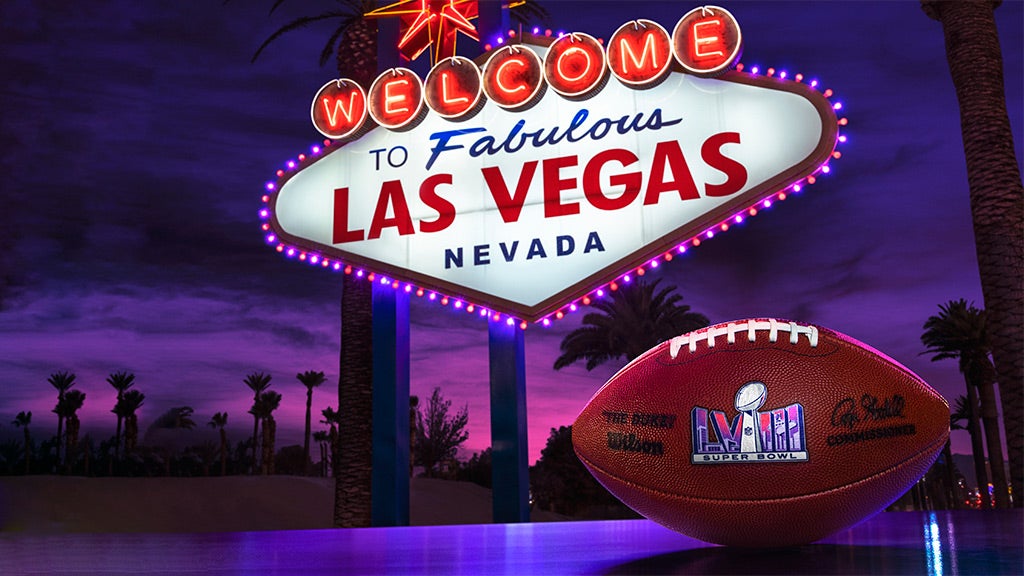In this edition of the GME3, we’re getting ready for the Big Game! This year’s Super Bowl is projected to be one of the largest betting events ever. We’re also looking at criticism from Canada’s privacy commissioner directed against federal agencies and a new tactic that some wellness influencers are using to grow their audiences. Read the full stories below!
Gambling
All Bets Are On
It’s almost time for the Big Game! The Super Bowl is happening this weekend and is being hosted for the first time in Las Vegas. While players are being reminded not to place any bets on the game, it’s an entirely different story for sports (and sports betting) fans. This Super Bowl is predicted to be the largest single sports betting event in the history of the United States, with the American Gaming Association projecting that 26% of US adults will bet on the game, for a combined total of $23 billion in wagers.
Since sports betting was opened up for legalization on a state-by-state basis in 2018, 38 states have passed legislation making the activity legal and accessible for their inhabitants. This has led to rapid growth in the sports betting industry, with more than $300 billion being wagered since 2018. In the first three quarters of 2023 alone over $79 billion worth of bets were placed.
Despite the rising popularity, representatives from the NFL have made it clear that they don’t want people to feel bombarded by sports betting ads – only 3 commercials for sports betting services are planned to air during the Super Bowl, and during the season sports gambling ads took up less than 5% of the total advertising airtime.
Sports betting operators are capitalizing on all the hype – ESPN (who now operate their own betting platform, ESPN BET) released a piece covering the NFL’s new attitude towards sports betting, and some shrewd operators are even offering Taylor Swift-themed propositions in advance of the superstar’s attendance this Sunday.
The NFL has historically not wanted to be associated with gambling of any kind, even banning ads promoting tourism in Las Vegas between the years of 2003 and 2019. Hosting the game in the gambling capital of the country really exemplifies the changing attitude towards sports betting in the league. Next year, the game will be held in New Orleans, another gaming-friendly jurisdiction, at the Caesars Superdome.
Media
Privacy Commissioner Goes Public
Canada’s privacy commissioner, Philippe Dufresne, has accused several federal departments and agencies of not meeting due diligence requirements before using tools capable of extracting data from personal devices like cell phones, computers, and tablets.
Dufresne chastised these agencies, as he only learned about the use of this technology second-hand when CBC Radio-Canada released a report about the use of these tools in November 2023. Dufresne argued that the office of the privacy commissioner should not be learning about the use of technology that potentially violates government privacy directives after the fact. These tools can be used to recover encrypted, or password-protected data, and can even be leveraged to access data in the cloud, reveal internet search history, deleted content, and social media activity.
Generally, a privacy impact assessment is required before any government agency launches an activity that involves handling or collecting sensitive information. Of the 13 agencies that Dufresne is calling out, none carried out any such assessment.
Dufresne argues that the requirement to carry out a privacy impact assessment should be codified in law as part of Canada’s Privacy Act. Otherwise, government agencies and departments will continue to take it as a suggestion, or something that happens after said sensitive information has already been collected. The 13 departments will appear before the same parliamentary committee in the coming weeks to have an opportunity to justify their use of these technologies.
Entertainment
Stretching and the Truth
“Wellness influencers” – a relatively new brand of influencers who focus on creating content around yoga, lifestyle, fitness, or alternative medicines – have found a surprising new avenue to gain popularity: spreading misinformation.
This phenomenon began in earnest in the first few years of the COVID-19 pandemic, largely due to the popularity of anti-vaccination rhetoric in online spaces. But, as the news cycle moved on from reporting about COVID, these influencers needed a new topic to draw in clicks and followers, and many of these wellness influencers have now moved on to climate change denial. Some of these wellness influencers have hundreds of thousands of followers, which has experts concerned about how audiences (including youth) are being exposed to misinformation about climate change.
In a study done by Cécile Simmons of the UK’s Institute for Strategic Dialogue, she found that in 150 wellness accounts, all of them offered advice on “wellness”, sold wellness products, and promoted at least some form of misinformation, ranging from outright climate change denial to claiming that wildfires in Hawaii were caused by “directed energy weapons.” With the majority of younger generations getting their news through social media platforms like Instagram or X, the proliferation of outright disinformation could have a substantial impact.
Whether this subsection of influencers is parroting extreme views to drive up engagement, or using conspiracy theories to sell wellness products, experts are calling for greater enforcement of platform policies surrounding the spread of misinformation. Tim Caulfield, a professor of health law and policy at the University of Alberta, has also called on regulators to take a more in-depth look at the products being advertised by these same influencers. If you’re new to the world or influencer marketing, or you’re a seasoned social media veteran who’s looking for advice before taking on a new campaign, reach out to Zack here at GME Law!
GME Law is Jack Tadman, Zack Pearlstein, Lindsay Anderson, Daniel Trujillo, and Will Sarwer-Foner Androsoff. Jack’s practice has focused exclusively on gaming law since he was an articling student in 2010, acting for the usual players in the gaming and quasi-gaming space. Zack joined Jack in September 2022. In addition to collaborating with Jack, and with a keen interest in privacy law, Zack brings a practice focused on issues unique to social media, influencer marketing, and video gaming. Lindsay is the most recent addition to the team, bringing her experience as a negotiator and contracts attorney, specializing in commercial technology, SaaS services, and data privacy.
At our firm, we are enthusiastic about aiding players in the gaming space, including sports leagues, media companies, advertisers, and more. Our specialized knowledge in these industries allows us to provide tailored solutions to our clients’ unique legal needs. Reach out to us HERE or contact Jack directly at jack@gmelawyers.com if you want to learn more!
Check out some of our previous editions of the GME3 HERE and HERE, and be sure to follow us on LinkedIn to be notified of new posts, keep up to date with industry news, and more!




